The VA home loan program has one of the most forgiving and flexible qualification criteria of any mortgage program available today. However, not all borrowers who apply for the program get approved. A small percentage of applicants are denied VA loans for several reasons.
Therefore, we will explore some common factors that lead to VA loan denial and how to avoid them. This will help you make informed decisions as you get to understand how do VA loan work.
5 Issues That Can Cause VA Loan Denial

This article is not meant to dissuade you from applying for a VA loan. As mentioned above, this is one of the easiest types of mortgage loans for borrowers to qualify for, thanks to the government backing involved.
The purpose of this guide is to explain why a VA loan might be denied so you can take various steps to avoid it happening to you.
1. The borrower has a very low credit score
The Department of Veterans Affairs does not set a minimum credit score for home buyers seeking a VA loan. They leave that up to the mortgage lender to decide.
VA loans typically require a lower credit score than conventional mortgage products. So, you don’t need flawless or perfect credit to apply for the program and qualify. In fact, borrowers who have been turned down for conventional financing in the past often find that they can get approved for a VA loan.
However, there are cases where a borrower’s credit score is simply too low to qualify for mortgage financing, regardless of the program being used. This is one of the factors that can cause a VA loan application to be denied.
Most mortgage lenders that offer VA loans prefer a credit score of 600 or higher in addition to a VA loan statement of service. Nevertheless, that number is not included in the VA loan guidelines. If an applicant is otherwise well qualified for the program, the lender might make allowances for a relatively low credit score.
How to avoid it: You can maintain a good credit score by paying your bills on time and reducing your outstanding debts. Your “payment history” weighs more than any other individual factor when it comes to credit scoring. So be sure to pay those credit card bills and car payments on time.
Furthermore, an applicant with a low credit score has an option of credit repair or rehabilitation. It may include using credit repairing agencies or implementing tactics to deal with the negative pieces on their credit record, which may comprise settling outstanding loans, payment plan bargaining or seeking goodwill adjustments from creditors for past delinquencies.
Besides that, demonstrating good credit behavior by using new credit accounts sensibly and maintaining a low credit use ratio can result in a better credit score over time.
The borrower must take a proactive attitude in managing their credit and financial health, especially when he/she plans to be a homeowner with a VA loan. Even though a low credit score may bring some difficulties, it doesn’t mean VA financing is ruled out.
2. The borrower has insufficient income

VA loan application can also be denied due to the borrower’s insufficient income. This is one of the most essential checkpoints during the mortgage application and underwriting process.
When you apply for a VA home loan, the lender reviews your income to ensure you earn enough to manage your monthly payments. Ideally, you’ll be able to cover your monthly housing costs and other recurring expenses while still having some “residual income” left over each month.
If borrowers do not have stable and sufficient income to repay their debt obligations, they could be turned down for a VA loan.
How to avoid it: To find out if you have sufficient income, just contact a VA-approved mortgage lender. They can review your financial status to determine if you’re a good candidate for the program. It’s better to ask up front than to have your VA loan application turned down due to insufficient income.
Borrowers can also help solve this issue by strengthening their income profile to increase their chances of qualifying for a VA loan. This may include examining avenues to increase their income, either through career advancement, monetized hobbies, or taking part in educational and training programs meant to raise their earning power.
Beyond that, lenders are able to invest more confidence in borrowers if they have been employed steadily and have stable incomes because this shows that they have the ability to repay their mortgage obligations. Ensuring a limited frequency of job changes or employment gaps diminishes the concerns about income stability in the underwriting process.
3. The borrower can’t afford their closing costs

One of the great things about the VA loan program is that it allows eligible borrowers to purchase a home with no down payment. However, closing costs, which can add up to thousands of dollars, must still be paid.
As a part of VA loan credit requirements, mortgage lenders review bank statements and other financial records to determine how much money a borrower has. They do this to ensure you have the funds to cover your closing costs and other purchase-related expenses. If a person lacks these funds, they could be denied a VA loan.
How to avoid it: Start saving as soon as possible. Establish a housing fund and make regular contributions. If necessary, set up a separate bank account, and consider using automatic transfers from checking to savings. You might also consider using gift money from an approved donor, such as a family member, to help cover your closing costs.
On the other hand, consumers can examine alternatives to lessen or eliminate VA loan closing expenses. One approach could be to ask the seller to pay part of the closing costs while negotiating through the purchase agreement, while another option is to take lender credits in exchange for a slightly higher interest rate.
A third alternative is to look for local or state programs that offer assistance to homebuyers who meet the requirements.
4. The home requires too much work to be habitable
The Department of Veterans Affairs lists minimum property requirements for homes purchased with a VA loan. Most of these VA loan requirements involve basic health and safety rather than minor “nitpicky” issues.
If a home has serious problems or needs extensive work to be habitable, it probably won’t qualify for VA mortgage financing. In that case, the VA loan could be denied even after the borrower has been initially approved.
How to avoid it: When house hunting, focus on homes in decent condition rather than fixer-upper properties. The house doesn’t need to be brand new or in immaculate condition. It just needs to be habitable without any serious issues that would be difficult to repair.
5. The borrower will end up carrying too much debt

The debt-to-income (DTI) ratio is another essential qualification criterion for borrowers applying for a VA home loan or VA Jumbo loan. If the lender determines that the borrower has excessive debt relative to their income, they might be denied a VA loan.
Mortgage lenders are concerned with debt because it affects borrowers’ ability to repay their home loan obligations successfully. Too much debt could also lead to financial distress for the borrower, and nobody wants that.
According to the Department of Veterans Affairs, “The debt-to-income ratio determines if you can qualify for VA loans.” And the acceptable debt-to-income ratio for a VA loan is 41%, per the VA underwriting guidelines.
But here again, that number is not set in stone. If the mortgage underwriter can determine the borrower has favorable compensating factors, they might allow a DTI ratio as high as 50%.
The critical point is that excessive debt could cause a borrower to be denied a VA loan.
How to avoid it: The obvious solution to a high debt level is to work on paying down those debts. That might be easier said than done. However, any efforts you make in this area can improve your chances of getting a VA loan approval while improving your quality of life.
Apart from that, the borrowers have various options, such as managing their debts consciously and perhaps reducing their debt-to-income ratio. Such a move could be mobilized through consolidating high-interest debts into lower-interest loans or credit cards, arranging longer-term repayment with creditors, or pursuing structured repayment programs.
Similarly, preparation of a comprehensive budget and focus on debt repayment steps can lay a great deal of groundwork for the borrower to manage his/her resources and pay off the debt in the shortest possible time.
Removing the resources from extravagant spending and allocating these funds to debt repayment can help one make quite massive steps in gradually closing the gap and benefiting financially.
Seeking guidance from financial advisors or credit counselors can provide valuable insights and personalized strategies for managing debt and improving financial stability. These professionals can offer support and expertise to help borrowers navigate challenges and achieve their goals of homeownership with a VA loan.

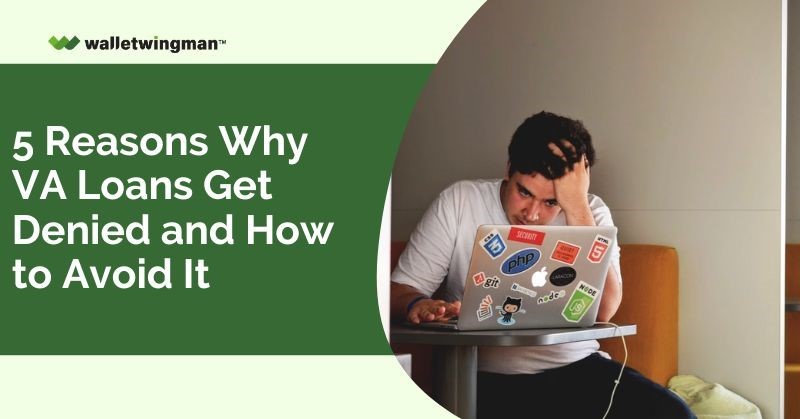
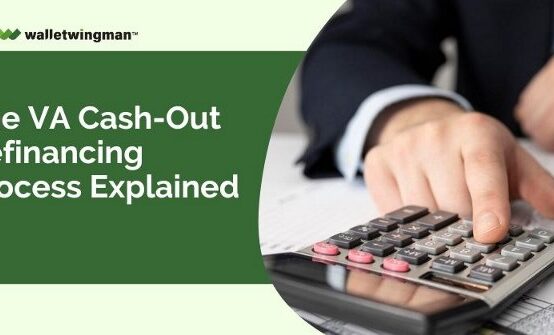 The VA Cash-Out Refinancing Process Explained
The VA Cash-Out Refinancing Process Explained 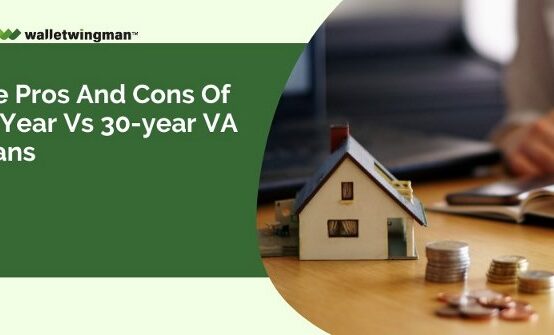 The Pros and Cons of 15-Year vs 30-year VA loans
The Pros and Cons of 15-Year vs 30-year VA loans 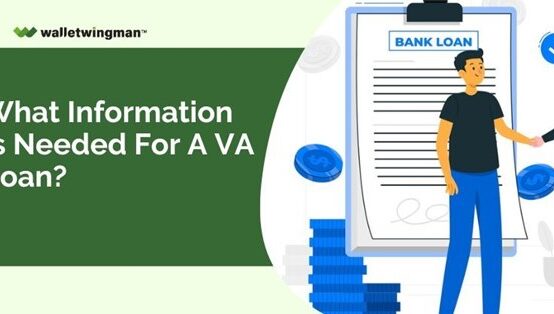 What Information Is Needed for a VA Loan?
What Information Is Needed for a VA Loan?  How Credit Scores Shape VA Loan Options?
How Credit Scores Shape VA Loan Options?  How Veterans Can Utilize VA Loans For Investment Property Ventures
How Veterans Can Utilize VA Loans For Investment Property Ventures 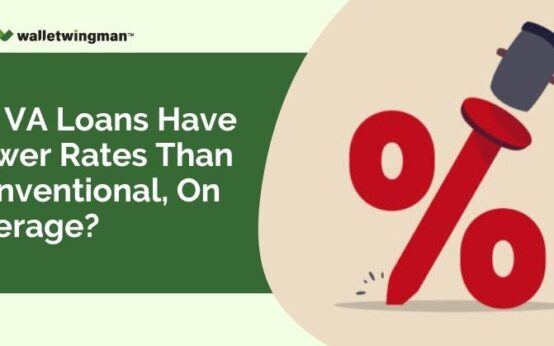 Do VA Loans Have Lower Rates Than Conventional, On Average?
Do VA Loans Have Lower Rates Than Conventional, On Average? 